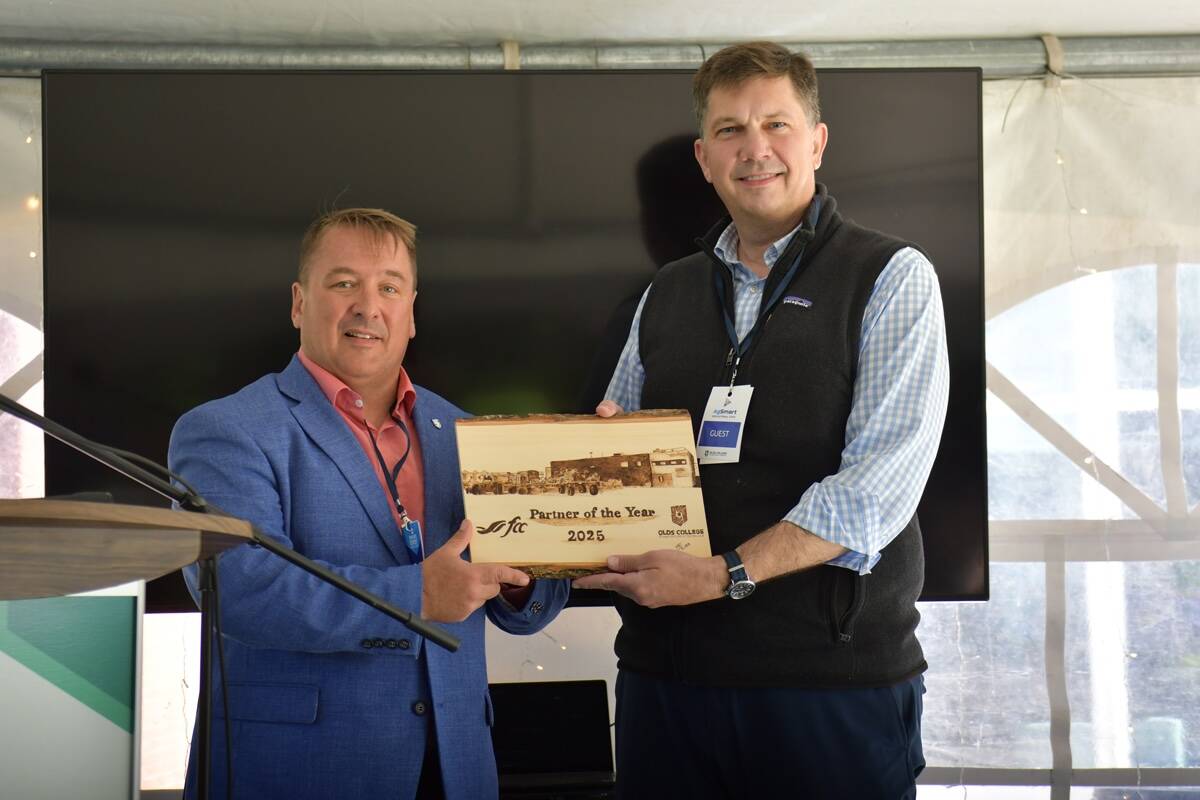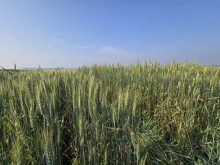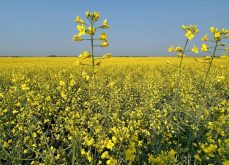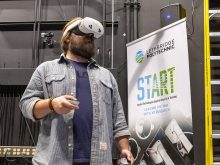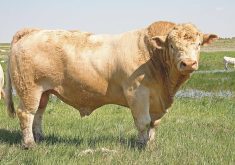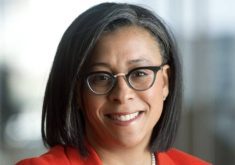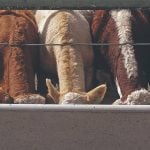Olds College of Agriculture and Technology recognized Farm Credit Canada (FCC) as the 2025 Partner of the Year, during a ceremony at AgSmart, the school’s annual education expo.
This award, which was given on July 29, is the highest honour the college bestows. It recognizes organizations who have demonstrated exceptional support and commitment to Olds College’s vision of advancing agriculture.
FCC was also awarded Partner of the Year in 2020.
Read Also
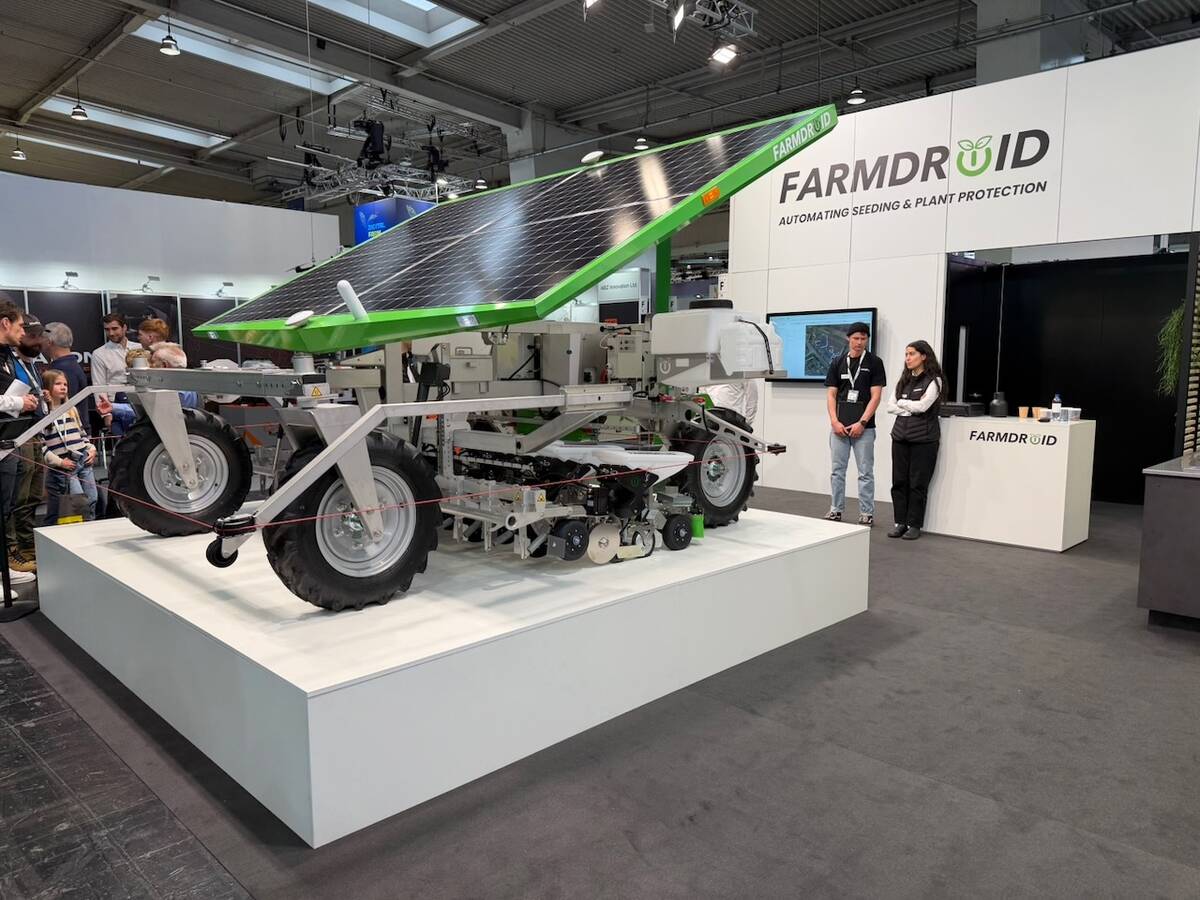
The long march to autonomy
The big players in the machinery market keep adding pieces towards autonomous vehicles for farming, but how far away is a final product?
“It’s the first time anyone has actually been partner of the year twice,” said Todd Ormann, Vice President of External Relations and Research at Olds College.
He said the recognition over the two years indicates that FCC is not just a one-year partner, but a consistent supporter over the years.
“I do want to mention that we appreciate the long-term strategic thinking that comes from FCC, because it really does show how you can support ag long-term,” he said.
Ormann said Olds College is not a massive institution. There are only about 500 staff, and 3,800 students. Class sizes are small.
“When you think about the things we do in agriculture, we have courses in heavy duty mechanics and welding, and we have a lot of stuff on the animal health side. We differentiate ourselves because of our ability to both teach and do research,” he said.
The college has over 3,000 acres, a 1,000 head feedlot of cattle, 130 head of cattle, and some sheep and horses.
Olds College does punch above its weight in research and has been recognized as one of the top 15 colleges in Canada for research.
The research at the central Alberta post-secondary institution is done at scale.
“To do the research, we have to do it with modern equipment and everything else,” said Ormann.
“We rely heavily on partnerships. From a research perspective, we have worked with about 500 companies since 2018.”
About 50 of those companies would be called partners, said Ormann.
“To make this work, we need to do things like the research and teaching, and we also need to be able to do things like AgSmart. We also need to be able to sponsor the research. We need those additional funds to take students to events and things of that nature,” he said.
“This is where FCC comes into play,” said Ormann.
FCC has helped with soil-based environmental research studies and has also sponsored Olds College to take students to Agribition in Regina, Sask. FCC is also keen to support AgAmart, Ormann said.
“This is almost as critical as research, because you do have to not just do the research, but you have to do the dissemination,” he said.
Unlike universities which do discovery research, Olds College is focussed on applied research. The college is more interested in economic development and testing, validating and showcasing technology.
FCC has contributed financially to numerous projects at Olds College. Their money supports the Smart Farm and the Smart Farm’s Operations Centre. Ormann described the operations centre as a farm shop, which has space for all the researchers. Equipment can be brought inside and worked on, but the building also houses the farm management team, the research team and the field research team.
“There are offices, but again, the really important piece is that we actually have a heated shop to bring equipment in and work on it,” said Ormann. Bins and cold storage are located right beside the Smart Farm’s Operations Centre.
Another project FCC and Olds College have cooperated on together is the AgExpert Field Project, which uses an FCC software system.
The Forage Quality and Quantity on Converted Marginal Areas is another project funded by FCC. This project looks at marginal land alternate use cases and measures return of investment on them.
Ormann said the project examines whether it is better to put marginal land in grassland for cattle or Ducks Unlimited, rather than farming it.
Other projects that FCC and Olds College are working on include the transformation of marginal cropland into perennial vegetation, and a land restoration project.
FCC’s support has also helped create the Producer Panel, which has been operating for about six years. The Producer Panel is a group of significant producers across western Canada that the college meets with regularly to have discussions about what is relevant and what is not relevant, said Ormann.
“Now those producers as well, though, that’s kind of transforming into becoming more of a panel to both test and validate equipment,” said Ormann.
He would like to be doing product development on research farms and in research environments, and market development on farms — allowing producers to test innovations to get feedback on them, position them, and figure out how they should be sold and adjusted.
Ormann said he can see the Producer Panel transforming from a panel of guidance to an extension of the research farm.
The partnership between FCC and Olds College works well because they are both aligned on agriculture.
“At the end of the day, FCC wants to see agriculture succeed. We’re almost always aligned in terms of what our long-term goals are,” he said.


